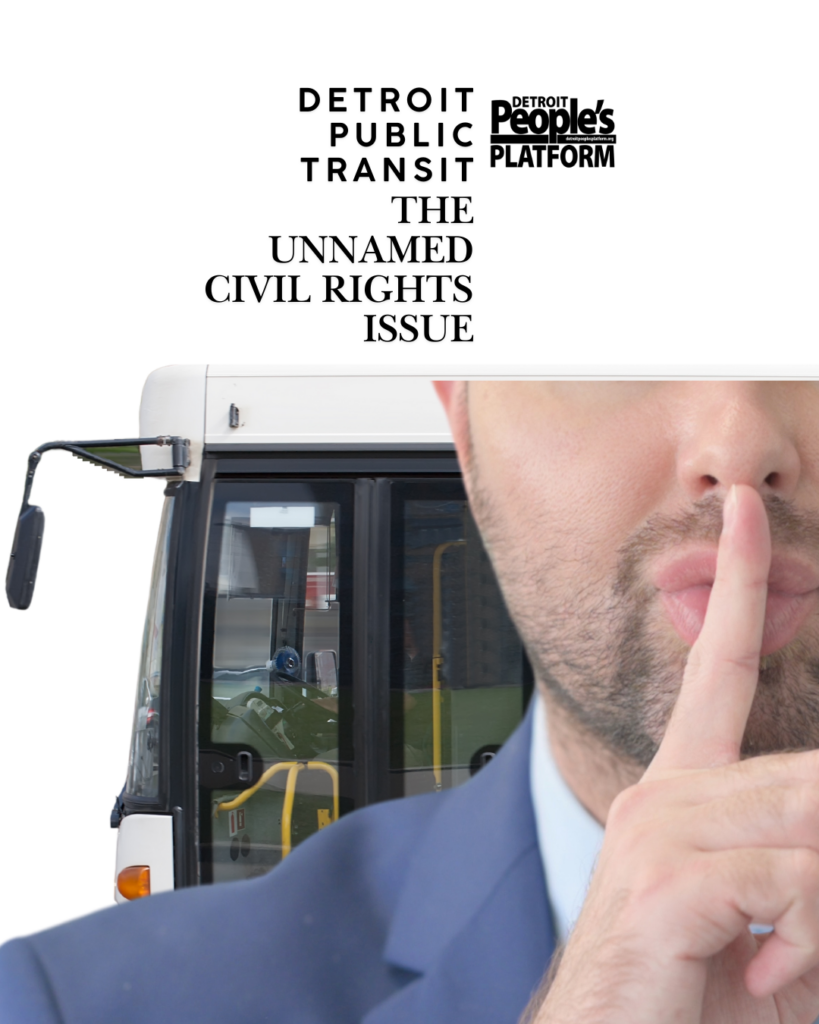 Detroit Public Transit
Detroit Public Transit
- The Unnamed Civil Rights Issue
In Lansing, during what is called the lame duck session 2024, the Michigan House of Representatives and Senate passed a bill (Public Transit Authority Opt-Out, HB 6088) that will opt all of Wayne County into public transportation. It was signed into law by Governor Whitmer before the end of 2024. This ends decades of suburban community transit opt out policies. Many of us believe this policy is historically rooted in the desire of suburban communities to limit access to their cities for jobs, medical care, education, social resources, and limit overall access to the community. This newly passed law will now include all of Wayne County into a regional transportation system that will improve public transit access for Detroit essential riders, the majority of whom tend to have jobs in these suburban communities.
Also, the law will now enable Wayne County to fund public transportation with a property tax mileage that may be put before the voters in future elections.. Technically, the City of Detroit is considered an opt out community because we have our own bus system. However, other cities like Livonia, Plymouth and other communities in Wayne County that do not utilize public bus service would now be included in a new regional transportation system.
Lastly, the interim director of Detroit Department of Transportation (DDOT), G. Michael Staley resigned at the end of 2024 to be replaced by Robert Cramer, who led the Detroit People Mover and will take over DDOT operations in January 2025.
Robert Cramer will be the 5th director for DDOT under the Duggan administration. This revolving door of Directors does not inspire confidence in essential bus riders who rely on the DDOT system for their basic transportation needs.
We must be clear in recognizing that the majority of Black Detroit and essential riders continue to experience a system of separate and unequal public transit because DDOT even with a million rides per month on average, does not receive comparable public investment including a free fare program similar to the under utilized Qline and the People Mover. Meanwhile, Detroit City Council continues to fail essential riders by not creating a low-income fare program - reduced fares for individuals experiencing homelessness, unemployed, who have served in the armed forces, or is a returning citizen. It remains clear that tourist and midtown/downtown residents, a largely white and more affluent population, experience a better public transit service thru the QLine.
As a part of the Regional Transit Authority (RTA) the Qline is now uniquely positioned to complete with DDOT for critical funding and the investments that commitment brings while DDOT and the significantly majority Black ridership languishes. In the coming year, Detroit public officials will be challenged to acknowledge and respond to public transit as the unnamed civil rights issue here in the city of Detroit.
Detroit People's Platform
http://linktr.ee/detroitpeoples